The Last Shall Be First: Innovation as a Head-to-Head Race
Patrick Arnold, Marc Möller, Catherine Roux, Economics Letters, 2025, 257, 112694.
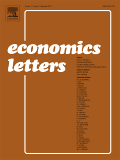
Uncertainty about the value of a contested innovation induces leaders and laggards to update their expectations in opposite directions. We characterize situations in which firms that have obtained an initial advantage are not the most likely to achieve final success. In spite of amplifying a leader’s advantage, greater contest intensity facilitates this effect, challenging the view that laggards require support to remain competitive.
Fighting for Lemons: The Balancing Effect of Private Information on Incentives in Dynamic Contests
Marc Möller and Juan Beccuti, Economic Journal, 2025, 135, 1641-1676.
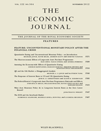
In a common value environment with multi-stage competition, losing a stage conveys positive news about a rival’s estimation of a contested prize, capable of balancing the discouraging effect of falling behind. We show that, due to players’ learning from stage-outcomes, aggregate incentives under private information are often greater than under public information and may even exceed the static competition benchmark. Moreover, laggards can become more motivated than leaders, giving rise to long-lasting fights. Our results have implications for the duration of R&D races, the desirability of feedback in labor- and procurement-contests, and the campaign spending and selective efficiency of presidential primaries.
Advance Selling in the Wake of Entry
Nadia Ceschi and Marc Möller, Journal of Industrial Economics, 2023, 71, 1072-1089.
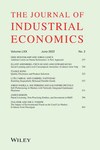
This article provides a tractable model of inter-temporal price-discrimination by heterogeneous firms, imperative for our understanding of advance purchase markets in the wake of entry. The pricing schedule of a more efficient entrant is found to differ systematically from the pricing schedule of a more prominent incumbent. By diverting competition to a stage where consumers face uncertainty about their preferences, advance selling reduces prices while increasing the entrant’s market share and profitability relative to the incumbent. Policies that curtail the firms’ ability to sell in advance, although potentially beneficial for welfare, may have the adverse effects of consolidating an incumbent’s position and of reducing the consumers’ surplus.
Screening by Mode of Trade
Juan Beccuti and Marc Möller, Games and Economic Behavior, 2021, 129, 400-420.
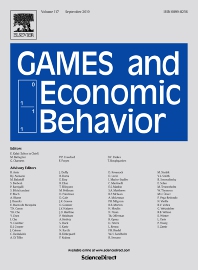
This paper endogenizes a monopolist’s choice between selling and renting in a non-anonymous durable goods setting with short-term commitment, by allowing for contracts that determine the good’s allocation not only at the beginning but also at the end of a given period. We show that the revenue-maximizing menu of contracts features screening by mode of trade when future trade is subject to frictions and the monopolist is more patient than consumers. Selling to high types while renting to low types, allows the monopolist to defer part of his compensation in form of a reduction of consumers’ future information rents while lowering the allocational costs of ordinary, intertemporal screening.
Self-Managed Work Teams: An Efficiency-Rationale for Pay-Compression
Nana Adrian and Marc Möller, Journal of Economics & Management Strategy, 2020, 29, 315-334.
Online Appendix
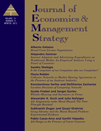
This paper uncovers a novel mechanism through which pay dispersion can have a negative effect on firm performance, even in the absence of equity or fairness considerations. We use a stylized model of a self-managed work team to show that, when team-work involves heterogeneous tasks, the provision of incentives to exert effort conflicts with the provision of incentives to share information relevant for decision-making. Pay dispersion deteriorates information sharing as it induces workers to conceal “bad news” in order to maintain their co-workers motivation.The practical implications of our theory are that team empowerment should go hand in hand with pay compression and that empowerment should be avoided when team production involves strongly heterogeneous tasks
Selling in Advance to Loss Averse Consumers
Heiko Karle and Marc Möller, International Economic Review, 2020, 61, 441-468.
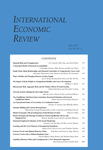
This paper examines the influence of information on market performance in an advance purchase setting. Information reduces the risk that an advance purchase results in a mismatch between consumer preferences and product characteristics. However, information may also raise the number of advance purchases by increasing a firm’s incentive to offer advance purchase discounts. Accounting for consumers’ aversion towards losses/risks turns out to be crucial as it changes our assessment of policies aiming to improve consumers’ information: Under monopoly information can be detrimental both for efficiency and consumer surplus whereas under competition information is doubly beneficial because it mitigates inter-temporal business stealing
The Distribution of Talent Across Contests
Ghazala Azmat and Marc Möller, Economic Journal, 2018, 128, 471-509.

Do the contests with the largest prizes attract the most-able contestants? To what extent do contestants avoid competition? In this paper, we show, theoretically and empirically, that the distribution of abilities plays a crucial role in determining contest choice. Complete sorting exists only when the proportion of high-ability contestants is sufficiently small. As this proportion increases, high-ability contestants shy away from competition and sorting decreases, such that, reverse sorting becomes a possibility. We test our theoretical predictions with a large panel data set containing contest choice over twenty years. We use exogenous variation in the participation of highly-able competitors to provide empirical evidence for the relationship among prizes, competition, and sorting
Dynamic Adverse Selection with a Patient Seller
Juan Beccuti and Marc Möller, Journal of Economic Theory, 2018, 173, 95-117.
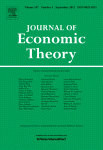
This paper considers dynamic bilateral trade with short-term commitment. We show that, when the seller is more patient than the buyer, there exist systematic differences between the optimal selling and renting mechanisms. While the former consists of simple price-posting, the latter induces the buyer to choose between a secure- and a random-delivery contract. Allowing for mechanisms more general than price-posting reduces the seller’s cost of learning the buyer’s valuation in the renting case. Renting leads to more learning than selling but only when general mechanisms are available. Our results contrast with the common view that the restriction to price-posting is innocuous and that informational asymmetries are more persistent under renting than under selling.
Competition in the Presence of Individual Demand Uncertainty
Marc Möller and Makoto Watanabe, RAND Journal of Economics, 2016, 47(2), 273-292.

This article offers a tractable model of (oligopolistic) competition in differentiated product markets characterized by individual demand uncertainty. The main result shows that, in equilibrium, firms offer advance purchase discounts and that these discounts are larger than in the monopolistic benchmark. Competition reduces welfare by increasing the fraction of consumers who purchase in advance, i.e. without (full) knowledge of their preferences.
Project Selection and Execution in Teams
Jordi Blanes-i-Vidal and Marc Möller, RAND Journal of Economics, 2016, 47(1), 166-185.

We use a mechanism-design approach to study a team whose members select a joint project and exert individual efforts to execute it. Members have private information about the qualities of alternative projects. Information sharing is obstructed by a trade-off between adaptation and motivation. We determine the conditions under which first-best project and effort choices are implementable and show that these conditions can become relaxed as the team grows in size. We also characterize the second-best mechanism and find that it may include a ‘motivational bias’, that is, a bias in favor of the team’s initially preferred project, and higher-than-optimal effort by uninformed team members.
Incentives versus Competitive Balance
Marc Möller, Economics Letters, 2012, 117(2), 505-508.

When players compete repeatedly in a series of contests, prizes won in earlier periods may improve the players’ abilities in later periods. This paper determines the allocation of prizes within and across contests that maximizes the (weighted) sum of aggregate efforts. It provides a new rationale for the use of multiple prizes, based on a trade-off between incentives and competitive balance. The optimal winner’s share is shown to be increasing in the players’ discount factor and the weight the organizer attaches to early periods, but decreasing in the strength of competition and the effectiveness with which prizes improve abilities.
Advance Purchase Discounts versus Clearance Sales
Marc Möller and Makoto Watanabe, Economic Journal, 2010, 120, 1125-1148.
Featured In: The Observer, Spiegel, El Pais, La Repubblica
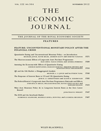
This paper considers advance selling problems. It explains why some goods (e.g. airline tickets) are sold cheap to early buyers, while others (e.g. theater tickets) offer discounts to those who buy late. We derive the profit maximizing selling strategy for a monopolist when aggregate demand is certain but buyers face uncertainty about their individual demands. When aggregate demand exceeds capacity, both Advance Purchase Discounts as well as Clearance Sales might be optimal. We determine how the comparison of these price discrimination strategies depends on the rationing rule, capacity costs, and the availability of temporal capacity limits, price commitment, and resale.
Ghazala Azmat and Marc Möller, RAND Journal of Economics, 2009, 40, 743-768.

When several contests compete for the participation of a common set of players, a contest’s allocation of prizes not only induces incentive effects but also participation effects. Our model predicts that an increase in the sensitivity with which contest outcomes depend on players’ efforts makes flatter prize structures more attractive to participants. In equilibrium, contests that aim to maximize the number of participants will award multiple prizes if and only if this sensitivity is sufficiently high. Moreover, the prize awarded to the winner is decreasing in the contests’ sensitivity. We provide empirical evidence from professional road running using race-distance as a measure of sensitivity. We show that steeper prize structures are more attractive to top ranked runners in longer, i.e. less sensitive, races. In line with our theory, longer races do in fact offer steeper prize structures
The Timing of Contracting with Externalities
Marc Möller, Journal of Economic Theory, 2007, 133, 484-503.
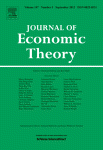
This paper endogenizes the timing of bilateral contracting between one principal and multiple agents in the presence of externalities. Contracting simultaneously with all agents is optimal for the principal if externalities become weaker the more an agent trades. If instead externalities become stronger, sequential negotiations might benefit the principal as they lower the agents’ outside options. Under some linearity conditions, the principal’s preferences with respect to different timings of contracting are opposed to their efficiency ranking.
When Should Leaders Share Information with their Subordinates?
Jordi Blanes-i-Vidal and Marc Möller, Journal of Economics and Management Strategy 2007, 16, 251-283.
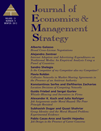
We show that when leaders share some of their information with subordinates, decision-making is subject to a motivational bias; leaders make the decisions their subordinates want to see. As this bias increases with the quality of the shared information, an improvement of an organisation’s information might even decrease its efficiency. As a consequence, information-sharing is not always optimal. We show however that self-confidence can help the leader to overcome his motivational bias, thus making information-sharing more attractive. Conversely we find that information-sharing can help to curb the autocratic tendencies of a self-confident leadership. We conclude that a policy of information-sharing and the appointment of a self-confident leadership are most effective when they go hand in hand.
Optimal Partnership in a Repeated Prisoner’s Dilemma
Marc Möller, Economics Letters, 2005, 88(1), 13-19.
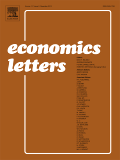
This paper studies informational partnerships in a repeated prisoner’s dilemma with random matching. Assuming that players observe the play within but not across partnerships, we find the surprising result that the relation between the observability of actions and the sustainability of cooperation is non-monotonic. Increasing partnerships beyond a certain optimal size hardens cooperation although it improves observability.
